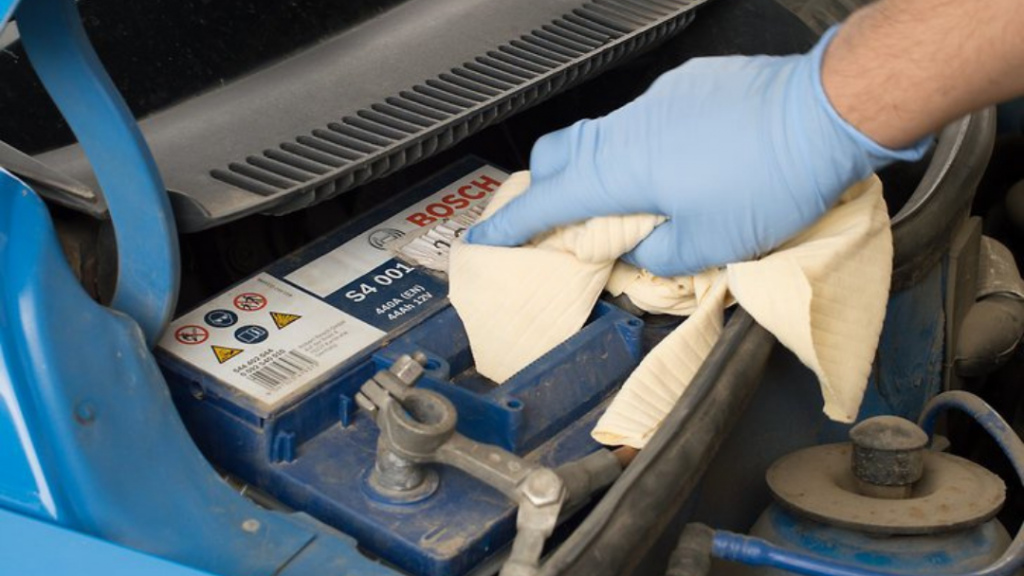6 Most Effective Tips that Helps to Increase Your Car Battery Life
The usual car battery can last from anywhere between 2 to 6 years. Battery life depends on how the car is driven, weather conditions it is driven in, its charging system, the vehicle type, and a gamut of other criteria. Read on below to find some useful tips that will gain you new insight on the most common factors that cause a flat battery. Servicing is too costly for your current budget? The following are some easy tips on how you can take care of your battery and help effectively prolong life.
1. Get car serviced on a regular basis

The best way to prevent your car from an unexpected breakdown on your next road trip is to have the battery professionally tested on a regular basis. A periodic checkup is a great idea for anyone who drives one. This is best done about once a month. Servicing includes an overall examination of the car, essentially checking if all the elements are as they should be.
2. Don’t leave the car unused for long periods
Use it. Or lose it! This one is something we know to be true of pretty much all machines. Never leaving your car unused for long periods is probably the most important tip one can give. Leaving the battery to itself for a prolonged period of time causes it to gradually get discharged. A car is meant to be driven, the car fluids circulated. Lack of use means moisture may accumulate as well. These eventually result in a dead battery, even within weeks!
If you’re planning to keep your vehicle in storage for a considerable while, make sure the cell’s terminals are disconnected.
3. Minimise heat exposure
You might have the popular notion that cold weather is your car battery’s greatest adversity. However, it will surprise you to find that it is not exactly so. It is actually only the extreme conditions that cause serious harm to the battery.
Extreme heat increases the rate of evaporation from the batteries even if they are properly sealed. This can result in overcharging.
Extreme cold temperatures may cause self-discharge. The battery electrolytes may even freeze.
Therefore it is essentially advised that the car is kept at a neutral temperature through both the summer and winter months and exposure to the extreme temperatures by duly prevented.
4. Clean car battery regularly

It is through continuous chemical processes occurring in the battery of the car that generates the necessary power that keeps the vehicle running. Key components that enable these reactions to take place include acid and lead. These reactions of course lead to deposits over the battery that over time accumulate over the cell terminals. These cause the battery to corrode over time.
Grime, dirt, dust, and dampness not only affect a vehicle’s performance and durability but also lead to leakage that may cause a short circuit. The best solution to this is of course keeping the battery clean.
You can do this with the help of water and a baking soda mixture. The mixture helps dissolve the corrosion off the terminals. The residual should be wiped off till absolutely dry. Using petroleum jelly also prevents corrosion to some extent.
5. Try and avoid frequent short trips
Only taking your car out for short trips implies that the battery never has sufficient time to recharge. This disturbs the electrolyte levels. If just in case the cell does not recharge to its full extent, crystalline deposits may form on the negative plates. Moreover, these deposits prevent the car from properly charging and greatly hampers the procedure. Thus, it is best to take your car out regularly for at least 30 minutes drives once a week so that the engine gets to warm up.
6. Testing battery voltage regularly
Even if you are not one of those who can afford to send your car for a professional servicing and checkup once every month, there is certainly something low budget that you can do yourself at home with easily available devices.
The voltage test :
What you need: All you need for this is a voltmeter. A digital one works best for just about anybody trying this one out for the first time.
The voltage test takes place at least 12 hours after the car has been sitting idle after switching off. The positive of the voltmeter is connected to the positive of the battery. Correspondingly, the negative of the voltmeter clamps onto the battery’s negative terminal.
A fully charged battery usually shows a reading between 12.4 volts to 12.8 volts. If the reading falls below these numbers, then it is best advisable to have the car serviced by a professional mechanic as soon as possible. A reading below 12.2 volts is usually an early signal indicating that the old battery needs to be replaced by a new one.
- SHOULD YOU USE NITROGEN IN YOUR CAR TYRES - October 8, 2021
- 6 Most Effective Tips that Helps to Increase Your Car Battery Life - September 24, 2021
- Luxurious Car Gift among these Top Indian Celebrities - September 21, 2021




